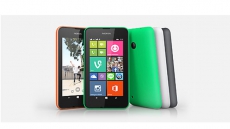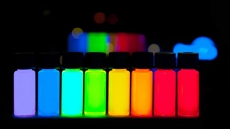Sweat can not only help you burn calories while exercising but also power small electronic devices in near future.
Researchers have designed a sensor in the form of a temporary tattoo that can both monitor a person's progress during exercise and produce power from their perspiration.
The device works by detecting and responding to lactate, which is naturally present in sweat.
“Lactate is a very important indicator of how you are doing during exercise,” said Wenzhao Jia, a postdoctoral student at University of California San Diego.
Jia and her colleagues developed a faster, easier and more comfortable way to measure lactate during exercise.
They imprinted a flexible lactate sensor onto a temporary tattoo paper.
The sensor contained an enzyme that strips electrons from lactate, generating a weak electrical current.
The researchers applied the tattoo to the upper arms of 10 healthy volunteers.
They measured the electrical current produced as the volunteers exercised at increasing resistance levels on a stationary bicycle for 30 minutes.
In this way, they could continuously monitor sweat lactate levels over time and with changes in exercise intensity.
The team went a step further and made a sweat-powered biobattery.
The maximum amount of energy produced by a person in the low-fitness group was 70 microWatts per cm2 of skin.
“The current produced is not that high, but we are working on enhancing it so that eventually we could power some small electronic devices,” Jia claimed.
Biobatteries offer certain advantages over conventional batteries: They recharge more quickly, use renewable energy sources (in this case, sweat), and are safer because they do not explode or leak toxic chemicals, researchers added.
The team described the approach at the 248th national meeting and exposition of the American Chemical Society (ACS) this week.





